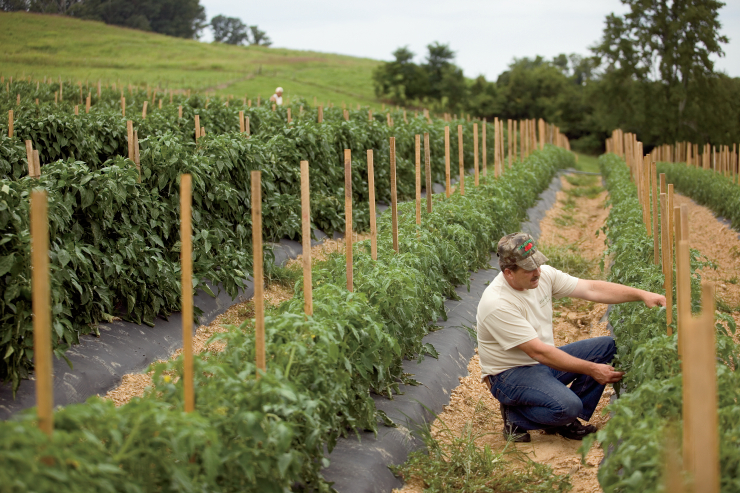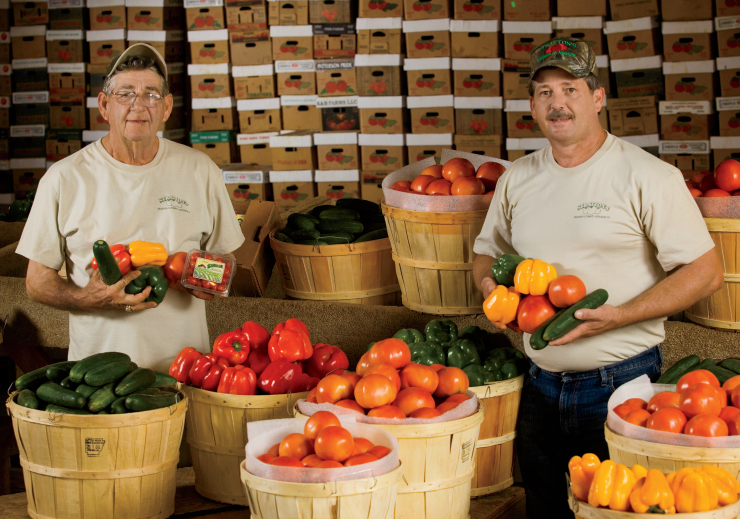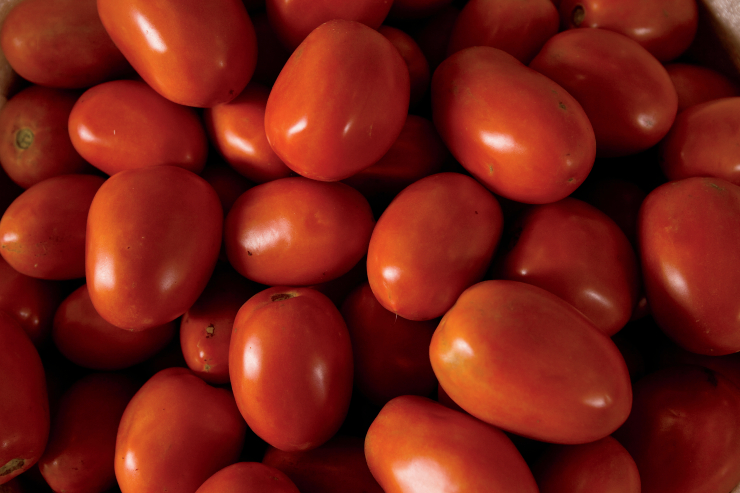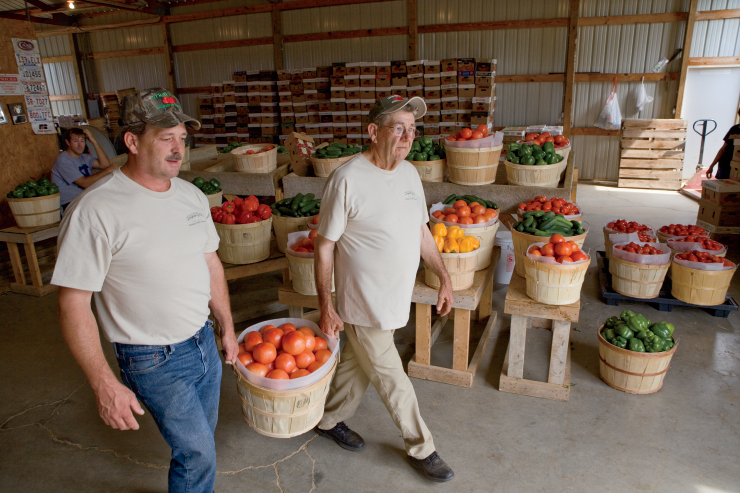Home > Tennessee > Tennessee Crops & Livestock > Tomatoes Lead the Way in Vegetable Crop Production Value
Tomatoes Lead the Way in Vegetable Crop Production Value
In partnership with: Tennessee Department of Agriculture

Luke Stratton thinks about tomatoes year round. And he’s growing them for almost that long.
Like many farms in Grainger County in East Tennessee, the Stratton Tomato Farm grows the crop in both fields and greenhouses.
The dual method helps ensure that tomatoes are available from spring well into fall. Stratton generally starts his greenhouse tomatoes around Dec. 10, and then plants them about two months later. Typically, they are ready to harvest by late April to early May.
“We do a lot of greenhouse tomatoes here,” says Stratton, a fourth-generation farmer who runs the operation with his father, Lillard Stratton. “We’re close to 50,000 plants under plastic.
“We try to plant so we run straight in and never run out,” he adds. “When the greenhouse tomatoes start going away, the fields pick up the slack. We usually run into November with tomatoes.”
Grainger County may be the unofficial tomato capital of Tennessee, but it’s only part of the story in explaining how important the crop is to the state. Other top-producing tomato counties include Washington, Unicoi and Lauderdale. There are some 1,500 farms and about 35,000 acres devoted to vegetables in the Volunteer State, and the state’s vegetable industry is worth nearly $75 million.

“Fresh market tomato production is about half of that value,” says Annette Wszelaki, vegetable specialist for the University of Tennessee’s Institute of Agriculture, “so tomatoes are extremely valuable to the state.”
Snap beans have historically ranked highest for production acreage of vegetable crops in Tennessee, and pumpkins and yellow squash usually are in the top 10 for U.S. production of vegetables by state. But tomatoes consistently lead vegetable crops in Tennessee for value of production, with the state ranking fourth in the country for fresh market tomatoes in 2011, according to U.S. Department of Agriculture statistics.
Stratton, who envisions his teenage sons, or perhaps his younger daughters, taking the farm to a fifth generation in a few years, grows 28 acres of vegetables that also include green beans, squash, cucumbers, zucchini and bell peppers. But about one-third of the acreage is tomatoes, featuring varieties such as yellow, Pink Ladies, stripes, grape and others. He sells mostly to grocery stores in East Tennessee, as well as into Indiana and north Georgia.

“A lot of the farmers in Grainger County still have wholesale arrangements (for marketing their crops) because of the sheer volume they’re dealing with,” Wszelaki says, “and many don’t have the time to go around to farmers markets and things like that.”
However, more farms are using the fresh-to-consumer approach to selling their tomatoes and other crops, according to Wszelaki. “I think we are seeing more of a trend in marketing directly to the consumer,” she says. “Of the 1,500 vegetable farms in Tennessee, two-thirds of those are less than five acres. The small farms generally do sell directly to consumers through farmers markets, roadside stands and CSAs (community-supported agriculture).”
As for growing trends, Wszelaki says we are seeing more of an interest in hydroponics, “but most of the production in Tennessee is still in the ground.”

Farms large and small face the same challenges, and lately the biggest one has had to do with Mother Nature. “Weather is a huge challenge,” Wszelaki says. “The last few years, we’ve had drought conditions, and for a vegetable crop, having water when the crop needs it is so critical.”
Most of the large tomato farms are irrigated, so the key challenges for that crop may be insects and diseases.
“It’s getting to be a big problem,” Stratton says. “We’ve got insects that, say, five to 10 years ago, you’d never heard of, never saw it before. Then all of a sudden, they’re finding their way to East Tennessee.”



